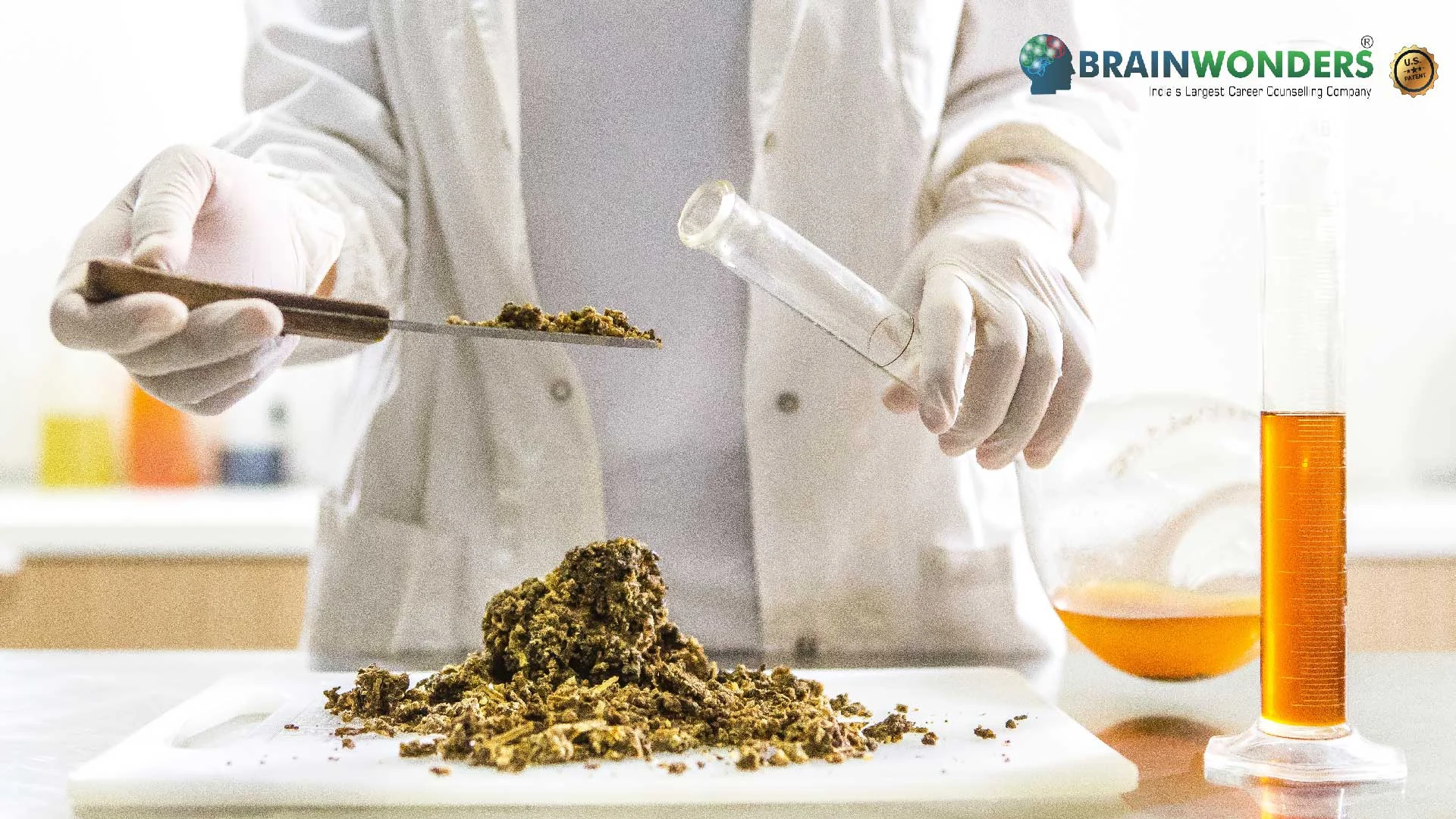Diploma in Food Technology - Course, Fees, Eligibility, Top Colleges, Top Careers
Course Description
Diploma in Food Technology is a course which provides students with knowledge and skills required for quality control and research & development in food industries manufacturing processed foods. Students will be learning about food analysis, packaging, chemistry, technology, microbiology, introduction to Food Science and Food Business and also core concepts of marketing food and the management of innovation. The course also will be teaching about food engineering, human nutrition and the role of microorganisms in relation to the quality and safety of foods from experts.
Why choose Diploma in Food Technology?
There are several compelling reasons to choose a Diploma in Food Technology:
- Relevance and Growing Industry: Food Technology plays a crucial role in the food industry, which is ever-expanding and continuously evolving. With increasing consumer demands for safe, nutritious, and innovative food products, professionals with expertise in food technology are in high order.
- Diverse Career Opportunities: A diploma in this field opens many career opportunities. Graduates can explore roles such as food technologists, quality control analysts, production managers, research assistants, and more in various food processing, manufacturing, and research organizations.
- Practical Learning: The diploma curriculum typically focuses on practical learning and hands-on training, equipping students with the necessary skills to handle real-world challenges in food processing, preservation, packaging, and quality control.
- Industry-Relevant Skills: Throughout the course, students gain knowledge of food chemistry, microbiology, food safety standards, and food processing techniques. These skills are precious in ensuring safe and high-quality food production.
- Growing Demand for Food Safety: As food safety and hygiene concerns increase, there is a growing need for professionals who can ensure compliance with food safety regulations and implement best practices in the industry.
- Career Progression: A diploma in food technology can serve as a stepping stone for further education and career growth. Graduates can opt for higher studies in food technology or related fields, such as pursuing a Bachelor's or Master's degree.
- Contribution to Society: Food technologists play a crucial role in developing and improving food products that cater to diverse dietary needs and preferences. Professionals in this field positively impact society's health and well-being by contributing to developing nutritious and safe food options.
Diploma in Food Technology Admission Process:
The admission process for the Diploma in Food Technology encompasses the following steps:
-
Application: The initial step involves filling out an application form where candidates provide their personal details and submit certificates to validate their previous academic qualifications.
-
Diploma in Food Technology Entrance Exams: Some institutes in India conduct specific entrance exams to shortlist candidates for the diploma course. These exams focus on content relevant to the field.
-
Interviews: As part of the selection process, candidates seeking admission may be required to participate in an interview. During the interview, authorities assess the candidates' documents and skills.
-
Merit-Based Selection: Selections may also be based on merit, taking into account factors such as the candidates' scores in their previous academic examinations.
Upon completing the diploma and stepping into entry-level positions as food technologists, students can expect to earn an average salary of INR 4 lakhs per year. The field of food technology offers diverse job opportunities, including roles such as lab technician, biochemist, food technologist, and production manager. According to PayScale, the average annual salary for a food technologist in India is around INR 4,18,000. Embarking on a career in food technology opens up promising prospects in the industry.
Typical day at work
Frequently Asked Questions
1. Which job is best in food technology?
Answer: The "best" job in food technology can vary based on individual interests and career goals. Some popular and rewarding career options in food technology include Food Technologist, Quality Control Technician, Food Safety Officer, and Product Development Executive. Each role offers unique opportunities to contribute to the food industry's growth and ensure safe and high-quality food production.
2. Which job has the highest salary in food technology?
Answer: The wages in food technology can vary depending on experience, location, and job responsibilities. Among the various roles, senior-level positions like Food Technologist, Food Safety Officer, or Quality Assurance Analyst have higher salary potential in the food technology field.
3. Which is better, food technology or biotechnology?
Answer: The choice between food technology and biotechnology depends on individual interests and career preferences. Food technology focuses on producing, processing, and preserving food products, while biotechnology involves using biological processes and organisms to develop various products and applications. Both fields offer promising career prospects in diverse industries, and the decision should be based on personal passion and career aspirations.
4. Is maths compulsory for food technology?
Answer: Mathematics is a common subject in the curriculum of food technology courses, especially during the foundational stages. Mathematics concepts are essential for various aspects of food technology, such as calculations related to food processing, quality control, and research. While a solid mathematical background may not be a strict requirement, it is beneficial for comprehending and excelling in the field.
5. Is food technology a good scope?
Answer: Yes, food technology offers a promising area with significant career opportunities. The food industry continues growing, driven by consumer demands for safe, nutritious, innovative food products. As a result, there is a constant need for skilled professionals in food technology to ensure product quality, safety, and compliance with industry standards. Graduates in food technology can explore diverse roles in research, quality control, production, and product development, making it a rewarding field with ample scope for growth and contribution to society.
Eligibilty
Aspiring candidates seeking admission to the Diploma in Food Technology course must fulfil the following eligibility criteria:
- Students must have completed their 10th standard from a recognized board or institute with a minimum of 50%-55% marks.
- Candidates should have studied in the science stream during their 10th standard, with central subjects including chemistry, physics, and biology.
- A 12th-level certification from a recognized board in India is required for admission to the course.
- There are no specific age criteria for applicants; candidates of all ages are welcome to apply.
How to apply for Diploma in Food Technology?
- Research and Choose Institutes: Research different institutes or colleges offering a Diploma in Food Technology. Consider the course curriculum, facilities, faculty, and placement opportunities.
- Check Eligibility Criteria: Ensure you meet the eligibility criteria specified by the institutes you are interested in. Standard eligibility requirements may include educational qualifications, subject preferences, and age criteria.
- Collect Application Form: Obtain the application form online through the institute's official website or from the admission office. Some institutes also provide the option to download the document.
- Fill out the Application Form: Complete the application form with accurate and relevant information. Be sure to double-check the details before submission.
- Attach Required Documents: Gather all the necessary documents per the institute's guidelines. Typically, these documents may include mark sheets, certificates, photographs, and identification proof.
- Submit the Application: Submit the filled application form and the required documents to the institute through online submission or by visiting the admission office in person.
- Pay Application Fee: Pay the application fee as specified by the institute. This fee may vary among different institutions.
- Entrance Exam (if applicable): Some institutes conduct entrance exams for admission to the diploma program. If an entrance exam is part of the selection process, prepare for it accordingly.
- Interview (if applicable): Based on the institute's admission process, there might be an interview round. Prepare for the discussion and showcase your passion for food technology.
- Wait for Results: After completing the application process and any required tests or interviews, await the announcement of results or merit lists.
- Confirm Admission: If selected for the Diploma in Food Technology program, follow the institute's instructions to confirm your admission by paying the required fees within the stipulated time.
Diploma in Food Technology: Future Scope
| Career Options After Diploma in Food Technology | Average Salary (per annum) |
|---|---|
| Food Technologist | INR 2.5 lakhs - 3.5 lakhs |
| Quality Control Technician | INR 2.0 lakhs - 3.0 lakhs |
| Food Safety Officer | INR 2.8 lakhs - 4.0 lakhs |
| Production Supervisor | INR 2.5 lakhs - 3.5 lakhs |
| Research Assistant | INR 2.5 lakhs - 3.5 lakhs |
| Food Processing Technician | INR 2.0 lakhs - 3.0 lakhs |
| Quality Assurance Analyst | INR 2.2 lakhs - 3.2 lakhs |
Colleges



